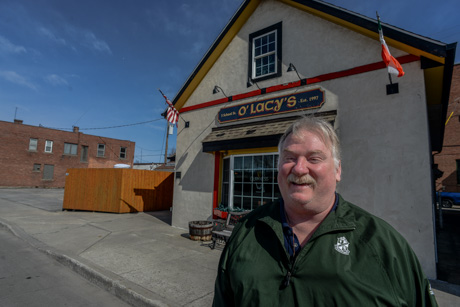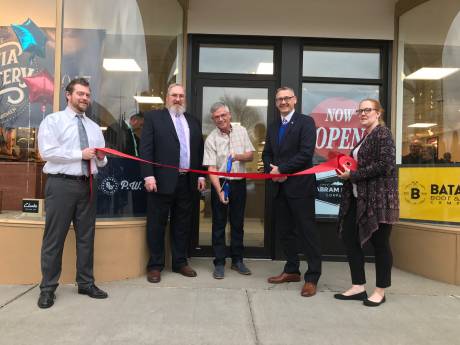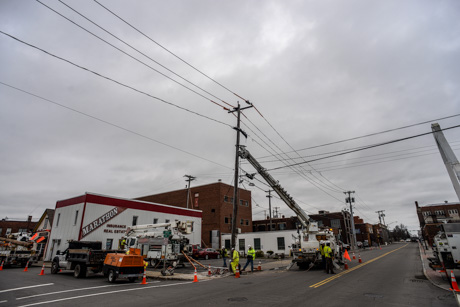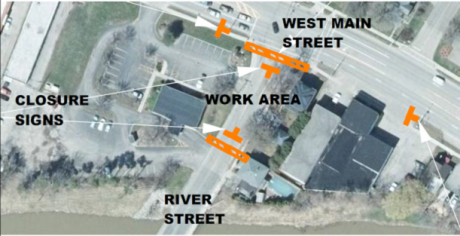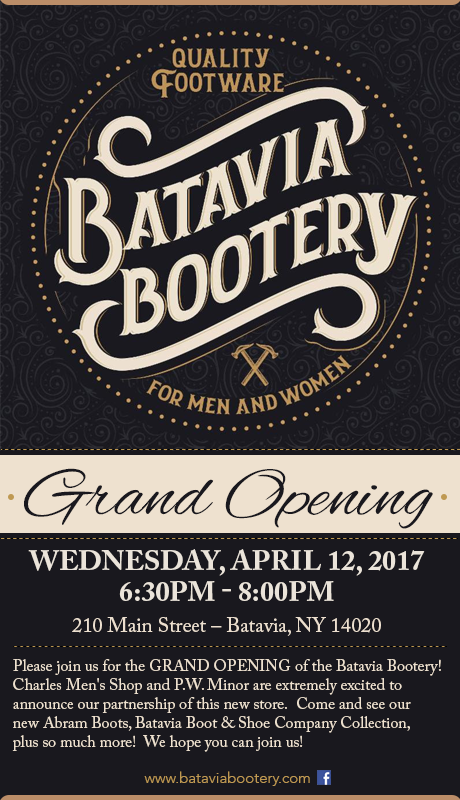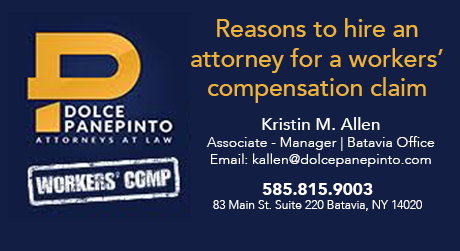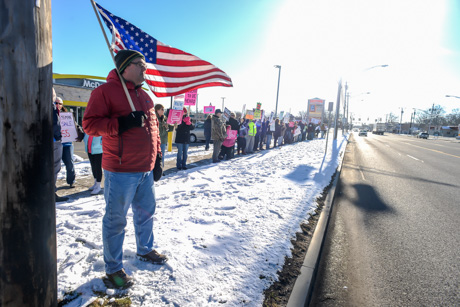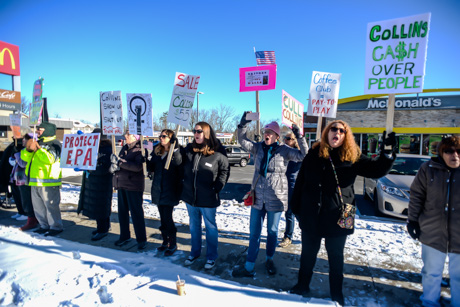In a letter to his clients, an attorney for the Mall Merchants Association is trying to change the terms of an already finalized settlement agreement with the City in the long-standing legal fight over the past, present and future of the City Centre mall, said City Manager Jason Molino.
In a letter dated April 6 and provided to local media late Friday, Attorney Hugh C. Carlin said the settlement with the city was only tentative and that there were two significant issues still to be addressed.
He accused Molino of discussing the settlement with the media in violation of an agreement, but word of the settlement came not directly from Molino but was a matter of public record because it was on the City Council agenda the first week of February.
"The City has proceeded with every aspect of this matter in accordance with the settlement terms that were agreed upon by the City and merchants representatives in December," Molino said.
Molino had not seen a copy of the letter before it was provided to local media outlets.
The terms of the settlement were agreed to through an 18-month-long mediation process in which both sides ran up significant legal bills, Molino said.
"In that time frame, the merchants have changed attorneys several times, however after extensive discussions, both parties agreed to settlement terms which were outlined publicly in the city’s February presentation," Molino said.
In his letter, Carlin said there are two main factors of disagreement remaining between the city and the mall merchants.
First, there is an issue related to easements for pedestrian and vehicle traffic for each property owner in the mall. The attorney also accused the city of using heavy-handed tactics to force a settlement by "hoarding" nine foreclosed properties and refusing to pay maintenance fees.
"During the negotiations between your representatives and the City, the issue of individual owners' rights to access their properties was not discussed," Carlin wrote. "In fact, the only restrictions on City property that were addressed related to the present contractual obligations of the City to maintain specific numbers of parking spots.
"The City now insists that, as part of any settlement, the easements be terminated," Carlin added. "The termination of the easements raises significant issues concerning your title. If the easements were terminated, your ability to refinance or transfer your parcel in the future would likely be jeopardized."
This misrepresents that facts, Molino said.
"It’s important to note that the first term agreed upon was the termination of all prior agreements, making them null and void," Molino said. "By the nature of terminating these agreements, all covenants, easements, and restrictions placed on real property associated with those agreements would be terminated as well.
"This included the concourse and city parking lots. For the merchants' attorneys to claim this issue was never discussed is simply not true as a third-party mediator, merchants' representatives and merchants' attorneys themselves all reviewed and approved the terms prior to an agreement being reached."
Carlin now says he won't support an agreement that changes the terms of easements.
"The City's inexplicable and irrational proposal comes at a cost to the Merchant Association," Carlin wrote. "The City will give the inferior and unacceptable easement only in 'exchange' for a cost-sharing arrangement for roof repairs should the sum of those repairs exceed $650,000. As you may recall, one of the primary reasons for the merchants negotiating team reaching an agreement with regard to the settlement framework was the City's assumption of all costs relating to the roof replacement without any cap on costs."
As for the foreclosed properties, Molino said Carlin was also informed on state law regarding how the city is obligated to handle those properties.
"The merchants' attorney has been repeatedly advised that upon foreclosure of real property taxes under the Real Property Tax Law all prior rights, interests and restrictions of record are terminated in the parcel," Molino said. "Hence, under the RPTL the City has no legal obligation to pay the past or future maintenance fees on foreclosed parcels under the historic mall agreements.
"To suggest otherwise evidences a serious lack of understanding of municipal law practice and procedure. However, if the settlement agreement is executed and the concourse user fee law adopted, the City would pay future user fees on foreclosed parcels."
Molino said it is normally against city policy to discuss ongoing litigation in public, but given the nature of the misstatements by Carlin to his clients, he wanted to clarify matters.
"Unfortunately, it appears from this letter that the merchants' attorney is attempting to reverse, back down or change the agreed upon settlement terms between the City and Merchants Association," Molino said. "While this is concerning on many levels, most concerning is the merchants' attorney is preventing the City and Merchant Association settlement terms from being executed, stopping the City from moving forward with the needed capital improvements to the concourse.
"Furthermore, after having expended close to $90,000 in legal fees over the last year (over $200,000 since 2009) without a signed settlement agreement, the letter from merchants' attorney appears to be an unfortunate attempt to deflect attention and blame. Sadly, the significant expenditures forced by the merchants' attorney suit and handling have drained substantial funds from the group's budget, and away from repairs and improvements of the mall."
Despite the disagreements, both Molino and Carlin said they are hopeful the 2008 lawsuit filed by the merchants can be settled.
"We are obviously disheartened by the turn of events in this case, but will persist in efforts to remain hopeful that cooler heads will reach a settlement consistent with the terms negotiated and agreed to in December and presented to you in February," Carlin wrote.
Molino: "Regardless of this setback, the City remains hopeful that despite the merchants' attorney's obstructions to the settlement process, the original terms negotiated in good faith between the City and Merchants Association will be executed in the near future, and the mall can be improved, adding value to the merchants' properties and open to the door to future revitalization in the City’s Downtown."








